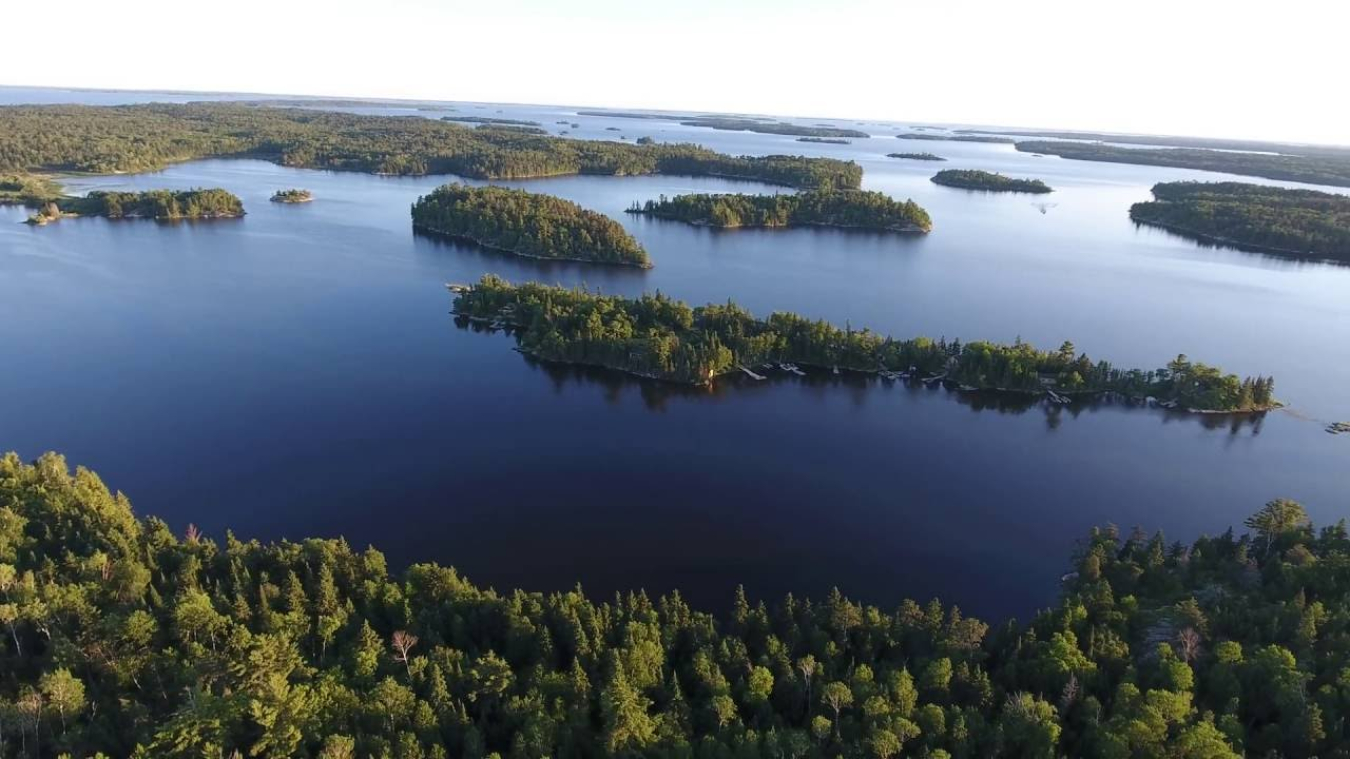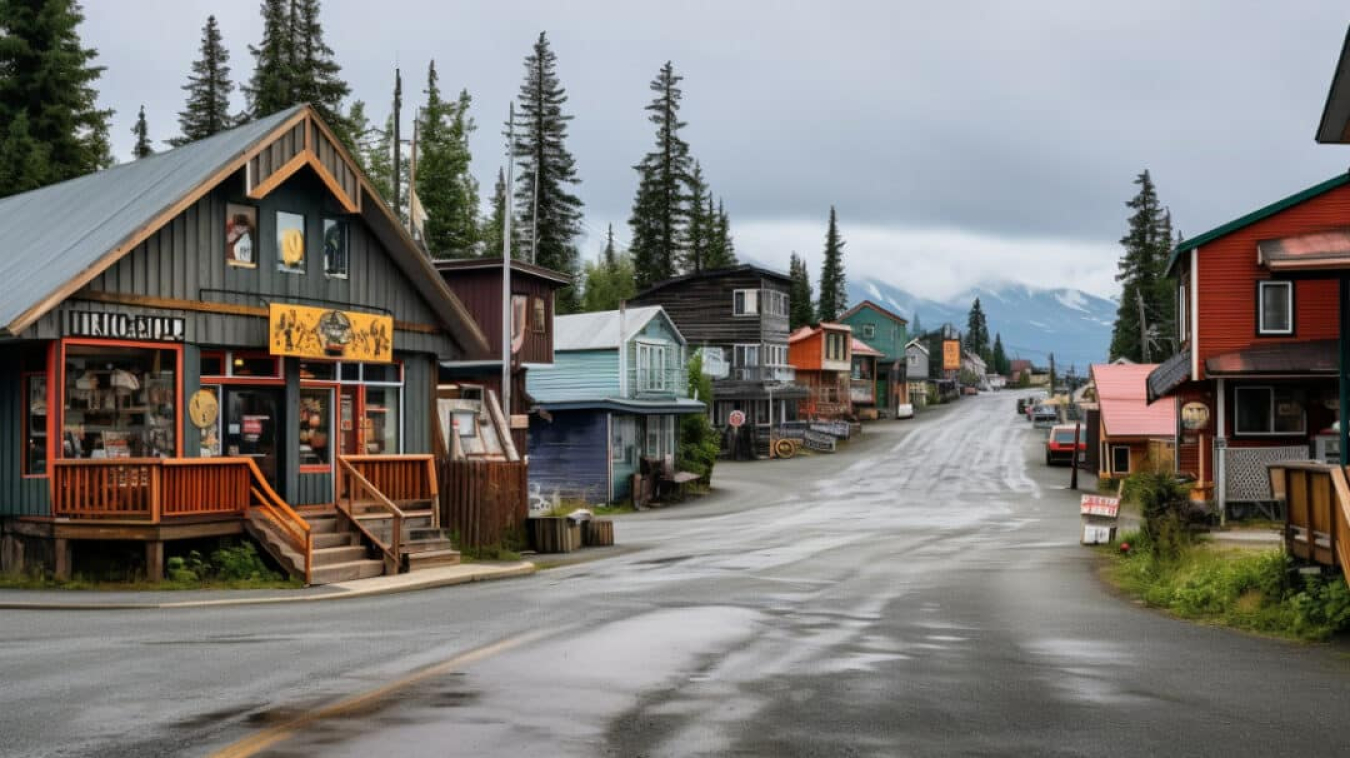Today the Department of Energy's Office of Energy Demonstrations announced awards for five projects in Alaska that will deliver clean energy funding, boost Tribal energy sovereignty, enhance resiliency, and jumpstart energy efficiency while dropping reliance on diesel.
August 14, 2024Today, the U.S. Department of Energy announced five awards for projects in Alaska under the Energy Improvements in Rural or Remote Areas (ERA) program.
This $1 billion from the Bipartisan Infrastructure Law aims to improve the resilience, reliability, and affordability of energy systems in communities across the country with 10,000 or fewer people. ERA aims to fund community-driven energy projects that demonstrate new energy systems, deliver measurable benefits to customers and build clean energy knowledge and capacity throughout rural America.
"The Arctic Energy Office is thrilled to see these projects getting supported through the competitive process under the Energy Improvements in Rural or Remote Areas program," said Erin Whitney, Director of the Arctic Energy Office. "This amount of funding for Alaskans - up to $36.02 million for all phases of the competitive awards, and $12.3 million across the three grant recipients - shows the caliber of the applications from Alaska and the need for our state's residents for infrastructure and clean energy project support."
Congratulations to the Alutiiq Tribe of Old Harbor and Tanana Chiefs Conference for your ERA Cooperative Agreement Awards today, and to the Native Village of Ouzinkie, Kokhanok Village Council, and Tanana Chiefs Conference for your ERA Grant Funding Awards.
Alaska's Cooperative Agreement Awards
Old Harbor Hydroelectric Project
This project plans to construct a run-of-the-river hydroelectric facility on Kodiak Island, Alaska capable of generating about 3,470 MWh of energy annually and offset diesel fuel use at the local power plant by 95%, enabling a year-round reliable energy source. Old Harbor is a remote Alutiiq Tribal village on Kodiak Island, Alaska, approximately 50 air miles from the nearest social services in the City of Kodiak. There are nearly 200 residents in Old Harbor and 83% are Native Alaskans. According to the Denali Commission, the majority of residents live below the federal poverty line.
Today, OCED announced a $1.5 million award for their first phase of work, with federal cost share reaching up to $10 million for all phases of the project.
Over the course of the project, the impacts will include providing a year-round reliable energy source for a remote tribal village located 50 air miles from the nearest town, reducing energy burden and lowering energy costs by directly subsidizing water, sewer, and electricity bills, and demonstrating a tribal ownership business model that may be replicated in a multitude of similar villages within the region.
As part of its Community Benefits Plan, the Alutiiq Tribe of Old Harbor and project partners aim to ensure stable sources of clean water and energy to help reduce the negative health impacts of using diesel fuel. The Tribe intends to have 100% of the proposed financial benefits go directly to Old Harbor residents as water, sewer, and electric bill subsidies, helping to reduce energy burdens of the community.
Alaskan Tribal Energy Sovereignty
Located in Nulato, Huslia, Minto, Kaltag, Grayling, Anvik, Shageluk, Holy Cross, Alaska, this project serves a wide region under the project awardee, Tanana Chiefs Conference.
Announced today, the phase one OCED award is $4.1 million, with up to $26,070,000 as a total federal cost share for all phases of the project.
This project aims to deploy high-penetration solar PV and battery storage systems into existing microgrids in eight remote tribal communities currently relying on diesel for 100% of their electrical production. All eight tribal communities are inaccessible by road and have limited seasonal accessibility by airplane, which leads to electricity costs that are more than four times higher than the national average. In collaboration with the Alaska Village Electric Cooperative, the project team plans to modernize grid infrastructure, provide job training to tribal communities, and develop Alaska’s largest tribally owned and operated Independent Power Producer. The project strives to offset the region’s diesel consumption by 40%, which would lower energy costs and reduce greenhouse gas emissions.
Project impacts will include improved microgrid reliability and resilience for eight remote Alaskan communities that are inaccessible by road and only seasonably accessible by boat or small airplane, increased Tribal Energy Sovereignty and Security by reducing the amount of electricity produced with imported diesel thereby lowering energy costs and reducing greenhouse gas emissions, and develop Alaska’s largest tribally owned and operated Independent Power Producer.
As part of its Community Benefits Plan, this project aims to improve grid reliability, enhance air quality, and decrease community energy burdens. The project team plans to implement a range of open communication channels to establish collaboration and engagement through social media, a project website, radio announcements for meetings, and flyers posted on community bulletin boards.
Alaska's ERA Grant Funding Awards

Ouzinkie Independent Power Energy Improvement Project
This project seeks to construct a 160 kW solar PV array and 210 kWh battery energy storage system for a microgrid for the Native Village of Ouzinkie on Spruce Island, Alaska. The proposed solar and battery system is the most cost-effective and low-maintenance renewable energy option for this community. This makes it the best fit to meet the geographic, economic, and cultural needs of Ouzinkie’s roughly 128 residents, who engage in subsistence lifestyles that include seasonal fishing, hunting, and berry picking, as there is no grocery store on Spruce Island. For these resources to last during seasonal lows, modern refrigeration and stable electricity are vital. The battery energy storage system plans to provide reliable, resilient, back-up power during maintenance outages, reducing diesel use, in addition to air and noise pollution. Using less diesel fuel will decrease the potential incidence of spills and contamination of the environment by petroleum products, which harm marine ecosystems on which Ouzinkie residents depend for food.
Today, OCED announced a $2.3 million award for the Ouzinkie Independent Power Energy Improvement Project.
The project also expects to provide clean, reliable power that meets the geographic, economic, and cultural needs of Ouzinkie’s residents, reduce community dependence on diesel fuel and provide resilient backup power during extreme weather events, and support local workforce through apprenticeship programs, scholarships, and post-secondary education opportunities.
Project impact will include providing clean, reliable power that meets the geographic, economic, and cultural needs of Ouzinkie’s residents, reducing community dependence on diesel fuel and provide resilient backup power during extreme weather events, and supporting local workforce through apprenticeship programs, scholarships, and post-secondary education opportunities.

Kokhanok's Paradigm Shift - Big Battery as Energy Backbone
This project in Kokhanok, Alaska, seeks to install a 1 MW battery energy storage system—as well as 100 kW solar PV, a new 100 kW wind turbine, and electric thermal storage (ETS) heating units—to Kokhanok, Alaska’s microgrid. Like many villages in remote Alaska, Kokhanok Village is only accessible by barge and plane, and Kokhanok uses diesel to supplement other power sources. However, the village of 170 residents, primarily Alutiiq, Dena’ina, and Yup’ik indigenous peoples, wants to transition to 100% renewable energy. Adding this range of clean energy sources and storage would be a big step toward achieving this goal. This project would significantly increase the microgrid’s reliability and resilience, while vastly reducing residents’ dependence on diesel. Based on energy use analysis, the upgrades to Kokhanok’s microgrid would displace an anticipated 70% of the local power plant’s diesel use within the first two years of the project's operations, improving the community’s air quality and reducing outages and electricity costs.
Today, OCED has announced an award of $5 million for this project to the Kokhanok Village Council.
In addition to advancing clean energy, this project would demonstrate the replicability and scalability of an islanded microgrid anchored by a large-capacity battery. Kokhanok expects its electricity needs to increase over time due to population growth and the use of electric vehicles, heat pumps, and more. By anticipating this demand, the system’s scalable design can integrate everything from customer-owned solar PV to larger-scale, clean energy technology— as funding for future projects becomes available. The Kokhanok Village Council plans to work with the Lake & Peninsula Borough to educate sister tribal communities on their efforts and results. Additionally, the Kokhanok Village Council plans to install ETS heating units into 10 elder residents’ homes to reduce each home’s annual diesel-heating costs by approximately $850 to $1,000.
Over the course of the project, this work is expected to install battery energy storage system, solar PV, and wind turbine to a microgrid, helping transition to 100% renewable energy, displace 70% or more of the village’s diesel use within the first two years of the project's operations, with future diesel primarily used to charge the battery storage system, and install heating units in elders’ and low-income residents’ homes, reducing their annual heating costs.

Tanacross Solar PV and Tok Battery Energy Storage System
The project plans to install upgrades at the Alaska Power & Telephone (AP&T) power plant in Tok, Alaska, providing the technical requirements to incorporate 1.5 MW of solar PV and a 1.5 MWh battery energy storage system on the grid that provides electricity to federally recognized tribes in Tanacross, Tetlin, and Dot Lake in Tok, Alaska. Located in a remote part of interior Alaska, these communities currently rely on expensive diesel fuel for energy. This project is estimated to displace more than 125,000 gallons of diesel and increase periods of diesels-off operations for the local electric utility, improving air quality and reducing noise pollution and energy costs for residents. In addition to generating cleaner electricity for Tok and the Villages of Tanacross and Tetlin, these improvements would provide local leaders with the option to add more renewable generation to Tok’s microgrid, further reducing diesel consumption, greenhouse gas emissions, and costs.
Today, OCED announced an award of $5 million to Tanana Chiefs Conference for this project.
Through this project, the work is expected to displace more than 125,000 gallons of diesel and reduce greenhouse gas emissions, improve air quality and reduce energy costs for local communities, while supporting the construction of other future clean energy projects, and create annual revenue that will cover the costs of maintenance and establish a reserves fund for future replacement and expansion.
Tanana Chiefs Conference plans to continue gathering tribal stakeholder input during public meetings. The project is expected to create local construction and maintenance employment opportunities. The proposed project could generate more than $380,000 annual revenue, which would be used to cover operations and maintenance costs and establish a reserve and replacement fund. Any remaining funds would be reinvested into the local tribal governments as well as set aside to support future renewable energy projects that will provide direct benefits to tribal citizens.
AnneMarie Horowitz

AnneMarie Horowitz is the Chief of Staff for the Arctic Energy Office. She joined the Arctic Energy Office in May 2023, and previously served as the Acting Communications Director until September 2023. AnneMarie has been with the Energy Department since 2010, and was previously on the digital team of the Office of Public Affairs, where she managed digital projects and internal employee communications efforts. AnneMarie was the Digital Communications Manager from March 2023 - September 2023 for the Department of Health and Human Affairs' Public Education Campaign, We Can Do This, to share information about the COVID vaccine.
AnneMarie founded two active employee resource groups at the Department of Energy: POWER (Professional Opportunities for Women in Energy Realized) and the Emerging Professionals Group. From 2015 - 2017 she served as the Special Advisor on workforce issues for Deputy Secretary of Energy Dr. Elizabeth Sherwood-Randall. She has also previously worked in the Under Secretary for Management and Performance and the Office of Economic Impact and Diversity.
AnneMarie created the STEM Rising: Women @ Energy series, featuring profiles of women from the agency who work in STEM careers. She was critical to establishing the Equality in Energy Transitions Initiative, a dual-hatted effort of the International Energy Agency and the Clean Energy Ministerial to advance the transition to a clean energy economy by engaging more women in clean energy, and is involved with the U.S. C3E Initiative as an award reviewer and communication. During the Obama Administration she was a DOE designee to the White House Council on Women and Girls. AnneMarie was a U.S. delegate to the APEC Women in the Economy Forum in 2014 in Beijing, China.
AnneMarie has a BA in Political Science from the University of Portland and a Masters of Government from Johns Hopkins University. She resides in Philadelphia.

